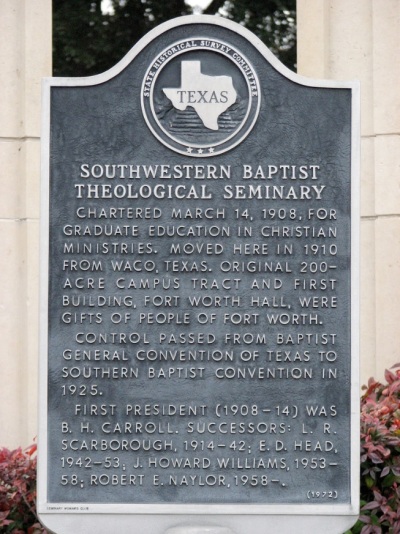Baptist Seminary Defends Acceptance of Palestinian Muslim Student, Says 'He Is a Man of Peace'

Southwestern Baptist Theological Seminary in Fort Worth, Texas, has defended its decision to permit a Palestinian Muslim doctoral student in 2012.
Steve. A Smith, a spokesperson for SWBTS explained that, Ghassan Nagagreh had enrolled in the school's Ph.D. program in archeology two years ago.
"The student was a part of a dig site ... and had a great relationship with our folks and wanted to study archeology. The best place to do that, of course, are the top archeology schools, which are in Israel, but he doesn't speak Hebrew," Smith told The Christian Post.
Smith said that SWBTS's acceptance of Nagargreh should not be perceived as an alteration in policy, but as a one-time exception.
"He was interested in studying [at] our site, and so we took a great chance in allowing him in," said Smith. "Again, it's certainly an exception."
"Really, to look at it from a broader perspective, this looks at the whole question of whether you have an archeology program. This is the broader issue. Once you have an archeology program, you're doing something a little different than training pastors explicitly. You're training people who would come in for a degree who, if they want a Ph.D. in archeology, put themselves in a small minority who can be credentialed to teach archeology. So, it makes sense that you would attract students who would be non-traditional," Smith added.
In a statement, SWBTS President Paige Patterson noted that it's common for non-Christians to work alongside SWBTS students at an archeological dig.
"For several years, Southwestern Seminary has operated a dig at Tel Gezer in Israel," Patterson said. "During that time we have been joined in the effort by around 20 of our own students, and about 60 students from secular schools and religious schools. We have had both Israelis and Muslims."
"One of these young men from a Muslim background loved our people and asked to study with us," Patterson said of Nagagreh, whom he characterized as a "man of peace," and said that he had "accepted the necessity of abiding by our moral code of conduct," which bans alcohol and requires students to "participate actively and regularly in a local congregation."
Reactions to SWBTS's decision on social media were mixed.
"THIS makes me proud to be a SWBTS alum! Being like Jesus to those far from Him," tweeted Texas pastor Clif Cummings.
"I had to get a church endorsement and give my testimony to get into seminary. What you did is unacceptable. Repent. Resign," tweeted Seth Dunn.
"Don't drink? No extra marital sex? Okay, good. Pray to a false God five times a day. Deny Christ. #moralcode," he continued, adding, "I had no problem signing my moral code pledge at seminary, but I know it's meaningless without Jesus."
This is not the first time under Patterson's leadership that a non-Christian student has been welcomed to a Christian institution. In his estimation, four or five students enrolled at Southeastern Baptist Theological Seminary, and Criswell College.
"This man's progress has been good," Patterson said, "and we are especially grateful for the close relations that have been forged with peaceful Muslims and the opportunities that we have had to share biblical truths with them. In all of this there is not even a hint of compromise of our historic position."
SWBTS has over 3,000 students and, according to its website, is one of the largest seminaries in the world.




























